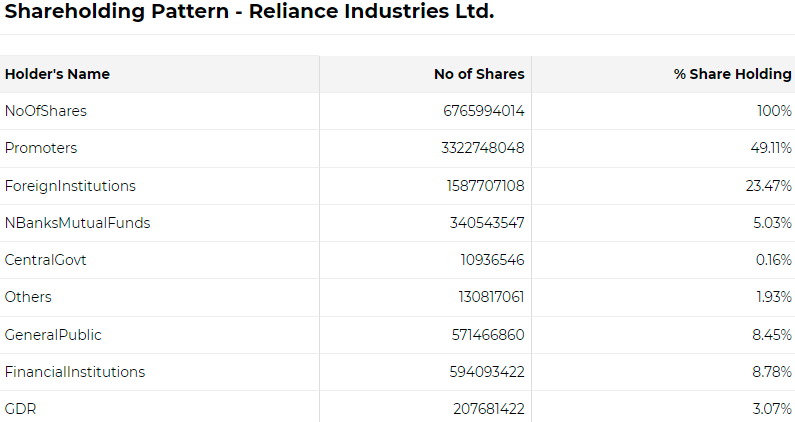Stock Promoters
People or organizations in charge of using various marketing techniques to raise money for a client firm.
What are Stock Promoters?
Stock promoters are people or organizations in charge of using various marketing techniques to raise money for a client firm. They are often employed in the lead-up to an IPO (initial public offering) with the responsibility of raising investor interest in a company's equity instruments.
Similar to how a marketing agency may advertise the goods or services of its customers, stock promoters raise public knowledge of investment securities to drive up the price of such securities.
Before choosing to buy stocks or penny stocks as a consequence of a promotion, investors should be aware of what stock promoters are and how they operate.
Promoters are typically compensated in the form of equity shares of respective holding companies in proportion to the amount of capital generated and play a key role in the success of start-up firms.
In addition to market tactics that encourage investment in a specific firm, a stock promoter's holdings also impact the overall number of equity shares traded in both primary and secondary markets.
Investment promoters alert potential investors to facts regarding a certain investment. Depending on the investment, they could go after domestic or international investors.
Stock Promoters Objectives
The objective is to identify money that may have been invested elsewhere had it not been for the restricted information regarding the marketed investment opportunity.
Promoters of stocks are not required to hold licenses or degrees. On the other hand, stockbrokers must be licensed and have at least a bachelor's degree.
Stockbrokers must complete a set of tests given by the Financial Industry Regulatory Authority (FINRA) to get a license.
A penny stock promoter is an illustration of a promoter. It's possible for this kind of promotion to engage in "pump and dump" tactics.
In this case, a promoter may encourage a purchasing frenzy for a stock by acquiring a sizable ownership holding while hinting that the stock is anticipated to increase.
The stock promoter will then sell or dump their shares when the price of the shares reaches its high, causing the price to decline. By selling their penny stocks on the secondary market, purchasers risk suffering significant losses.
Types of Stock Promoters
Stock promoters can be categorized into the following groups according to the nature of an issuing corporation or authorized body:
1. Penny Promoter
One of the most common forms of promoters, these individuals or businesses, are in charge of raising awareness of a new issuing entity among locals.
Depending on the criteria and rules established in advance by issuing firms, such a promotion may be available to both residents and non-residents.
Since investors lack sufficient information about the firms issuing the stocks and the services they offer, penny stocks are sometimes viewed as a problematic type of investment.
All equities trading in the U.S. for less than $5 are known as penny stocks. They host a variety of problems, including a lack of publicly available information, the highly speculative nature of these assets, as well as their frequently wide bid-ask spreads, and limited trading volume.
In these situations, a promoter's ownership of shares inspires investor confidence in the startup firm’s future performance, hence increasing the value of such penny stocks.
In the long term, investing in firms with such high development potential and solid foundations can result in considerable financial gains as the values of the corresponding shares might increase significantly.
However, a penny stock promoter may occasionally provide investors with false information about a firm's real value and key performance indicators, leading to significant losses.
Instead of relying only on stock promoter information, investors should thoroughly analyze a business's intrinsic valuation and management to determine its genuine growth potential in the current market environment.
2. Government-Based Trade Promoters
Some government organizations, including the International Trade Administration (ITA), a U.S. Department of Commerce division, support American businesses with international markets.
This might involve support with marketing initiatives or difficulties with exporting goods.
3. Institutional Promoters
All equity shareholders eventually take on the role of institutional promoters of a firm as they counsel their friends and family to buy the same equities.
Such a promoter can only be produced based on prior performance and improves a company's market reputation without putting any financial load on it.
High yearly sales and turnover, timely profit and dividend announcements, and other factors might lead to the emergence of an institutional promoter and a significant increase in trading volume. This, in turn, raises the market value for those shares due to increased demand.
What Is Promoter's Holding
The percentage of the company's shares controlled by promoters is known as the "promoter holdings."
As an illustration, promoters own around 50% of Reliance Industries Limited. A corporation can have both domestic and foreign investors in addition to promoters. Retail investors, like us, also own shares of the corporation if it is listed.
In addition to revealing how the pie is divided regarding who owns how much, promoter holdings also reveal the promoters' perspectives. How? Consider a scenario in which you witness promoters of a firm making purchases, increasing their ownership of the company.
What does this represent? It demonstrates that the company's investors believe purchasing shares in this business is worthwhile. This indicates that promoters have confidence in the company's development.
In light of this, a higher promoter holding is seen favorably by investors. This demonstrates the company's overall strength and tells investors that the stock is a solid investment.
Take Reliance Industries as an illustration once again. The promoter holding has grown from 47.27 percent in March 2019 to 49.11 percent in March 2020. Investors are more likely to put money into the business as a result.

Source: The Economic Times
Now picture a scenario where the promoter holding falls. Inversely, a declining promoter holding sends a warning to investors that the promoters themselves do not believe in the company's future.
Investors may find it concerning that promoters are involved in the business's day-to-day operations, in particular.
On the other hand, a decrease in promoter holdings is not always a bad thing. Promoters occasionally need to sell their stakes to cover personal needs or, like Jeff Bezos, to fund an investment in a new business.
Knowing the rationale behind the share's liquidation is therefore crucial. There is no need to be concerned if there is a valid explanation. However, a sudden drop in promoter holding may be cause for concern.
Stock Promoters Criticism
A stock promoter is essential in controlling the demand for a company's shares on the stock market.
Although a high holding value fosters optimism about a company's growth in the future, selling promoter holdings frequently prompts panic buying among inexperienced investors.
In this regard, a promoter frequently engages in "pump and dump" conduct to create significant personal profits from a new company initiative.
When a promoter acquires significant equity stakes, the most common pump-and-dump strategies are used by penny stock businesses.
Following suit, many people frequently buy these shares since it is anticipated that the firm will perform well in the future. This quickly increases the share price.
However, stock promoters start to "dump" (resell) their shares on the market as share prices reach their high. Prices are drastically reduced due to regular investors losing faith in the investment opportunity.
People who resell such shares on the secondary market are exposed to significant losses because of the high related liquidity risks.
Even while a stock promoter's ownership stake reflects the company's potential, it is still important to consider other factors to maximize results.
As they quantify the company's historical performance, technical analysis indicators like price-to-book value, EBITDA margin, price-to-earnings ratio, etc., should also be considered.









or Want to Sign up with your social account?